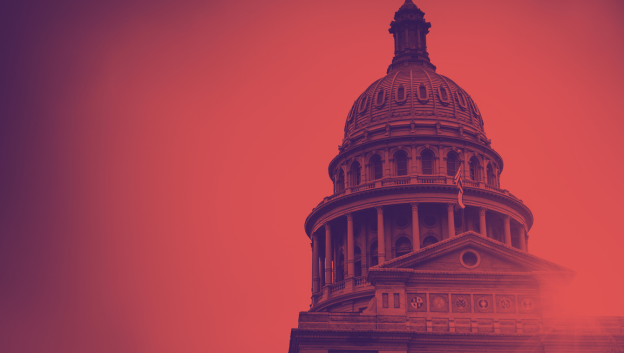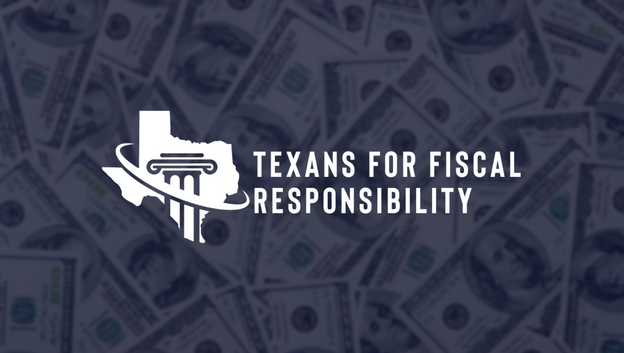
This Friday, September 1st, 2023, marks the day nearly 800 new laws, passed by the 88th Legislature, go into effect. Of those, several will impact Texas taxpayers directly both immediately and into the future.
For Texas taxpayers, the 88th Legislative Session was one of the most dismal.
Collectively, lawmakers squandered the opportunity provided to them through the nearly $33 billion budget surplus (i.e. over-collected taxpayer dollars) by not putting Texans on a path to the elimination of property tax. Instead, as an outcome of the subsequent special legislative sessions, continued the failed “slow-the-growth” strategy in the form of property tax relief, amounting to temporary relief at best.
Lawmakers did take the opportunity to spend the most they ever have in Texas history, spending billions of dollars on new programs and corporate welfare, including reviving the largest corporate welfare program in Texas history, which they themselves chose to end just one legislative session earlier.
Quick-Jump
- Historic Spending (HB 1)
- Corporate Welfare (HB 5)
- The ‘Death Star’ Bill (HB 2127)
- Government Schools (HB 900 & HB 3)
- Protecting Children (SB 12 & SB 14)
- Government Overreach (SB 29)
- Higher Education (SB 15 & SB 18)
- Miscellaneous (SB 379 & HB 25)

Spend As They Have Never Spent Before
The biennial state budget for the next two fiscal years (2024 – 2025) allocates $321.1 billion taxpayer dollars to various government programs. It includes $17.6 billion allocated for property tax relief, albeit much of it to maintain older relief efforts, over $10 billion in corporate welfare, and over $5 billion for ongoing border security efforts. The $321.1 billion budget is an increase of 21.3% ($56.5 billion) increase over appropriations made in the previous biennium (FY 2022-23).
According to Bill Peacock, a research contributor for Texans for Fiscal Responsibility (TFR), “of the $157 billion increase in total appropriations in a session since 2003, the 88th Texas Legislature is responsible for $69.3 billion.” Peacock also stated that “government spending that extends beyond securing our rights through the administration of laws, courts, police, and national defense is spending that increases a government’s ownership or control of the means of producing goods and services.”
Vance Ginn, a Ph.D. economist who also contributes research to TFR’s efforts has previously said this about the current state budget: “This is not what Texans want or expect from their elected officials. If this continues, Texas will be California soon.”
Perhaps the worst part of lawmakers spending more than they ever have before is that it will all but assuredly be the new baseline they start from in the next legislative session, further perpetuating the increase.
When it was all said and done, only 22 House lawmakers and 2 State Senators voted against the final passage of the state budget. Of those lawmakers, only 4 were Republican, State Reps. Brian Harrison (Midlothian), Richard Hayes (Hickory Creek), Matt Schaefer (Tyler), and Tony Tinderholt (Arlington). Appropriations included in House Bill 1 go into effect Friday.

Government Picking Winners & Losers
One of the biggest takeaways from the most recent legislative session was just how many lawmakers reject the idea of free enterprise and support government intrusion into market forces under the guise of economic development. In spite of their own political party’s platforms (both the Republican and Democrat platforms oppose corporate welfare), lawmakers overwhelmingly passed both additional and renewed corporate welfare programs. Nearly $18 billion is being funneled, one way or another, to private businesses.
House Bill 5 – Texas Jobs, Energy, Technology, & Innovation Act
Lawmakers also successfully revived the largest corporate welfare program in Texas state history through House Bill 5. Authored by State Rep. Todd Hunter (R-Corpus Christi), the Texas Jobs, Energy, Technology, & Innovation Act technically goes into effect in January of 2024. However, a provision allowing the Texas Comptroller to adopt rules, determine whether an applicant meets the requirements, and authorize applicants or school districts to submit the forms electronically, goes into effect September 1.
Though the new program purports to have safeguards to provide for additional transparency and accountability, it still ultimately allows the government to pick winners over losers, providing a property tax abatement to qualifying companies and merely shifting the tax burden to individual property taxpayers who are afforded no such abatements

The ‘Death Star’ Bill
House Bill 2127 – Texas Regulatory Consistency Act
One of the silver linings of the legislative session was that of House Bill 2127, authored by State Rep. Dustin Burrows (R-Lubbock). This legislation, given the moniker of the “Death Star Bill” by many of its detractors, was officially known as the Texas Regulatory Consistency Act. The legislation ultimately prohibits a municipality or county from adopting, enforcing, or maintaining an ordinance, order, or rule seeking to regulate something already regulated by the state, with a few exceptions.
Some of the prohibitions include things like labor and employment practices, environmental regulation, and other items that burden businesses that operate in multiple governmental jurisdictions. The legislation also allows businesses and individuals to take legal action against a local government jurisdiction or official if they are adversely affected by such regulations.
Ultimately, the legislation will work to remove barriers to prosperity and aid in the growth of the state’s economy. Almost immediately upon passage, the legislation came under litigation. The City of Houston brought a suit (later joined by several local governments) against the state of Texas, accusing lawmakers of eating away at local control. The City of San Antonio brought a separate lawsuit as well claiming that the legislation contradicts the constitutional authority given to home-rule cities. On Wednesday, a Travis County judge ordered that the motion for summary judgment by the cities be granted, declaring the legislation unconstitutional. For now, it means the legislation will be implemented on Friday barring an injunction being added to the summary judgment. The author of the legislation took to Twitter/X to assure Texans that the legislation would be upheld by the Texas Supreme Court and be implemented.

Government Schools
House Bill 900 – READER Act
In the wake of the COVID-19 pandemic, an increasing number of parents grew concerned with the material and curriculum being used to educate their children in government schools. In the midst of all of this, many of those same parents came to witness pornographic material being given to children in school libraries. As such, State Rep. Jared Patterson (R-Frisco) filed legislation entitled the READER Act (Restricting Explicit and Adult‑Designated Educational Resources). Ultimately the READER Act regulates library materials sold to or included in public school libraries. It also requires that the Texas State Library and Archives Commission adopt school library standards that prohibit the purchase of any harmful material that is sexually explicit or educationally unsuitable and recognizes that parents are the primary decision-makers regarding students’ access to library materials, among several other provisions.
The READER Act also became the subject of litigation. Two Texas-based bookstores and multiple organizations allege that if the law is allowed to take effect it would “cause a recall of many books in K-12 public schools, bans of even more, and the establishment of an unconstitutional-and unprecedented state-wide book licensing regime that compels private companies and individuals to adopt the State’s messages or face government punishment.” A federal judge issued an oral injunction against the legislation, temporarily delaying its implementation.
House Bill 3 – Government School Security
The legislation was also passed seeking to ‘harden’ government schools to provide a secure and safe environment for Texas children. House Bill 3, authored by Burrows, ultimately establishes a number of provisions aimed at school safety and security, perhaps most notably requiring at least one armed security officer for each government school campus. The Legislative Budget Board estimated a cost of almost $293 million to implement the provisions over the next biennium. Several school districts across the state have indicated they will be unable to fulfill the requirement by the September 1st deadline.

Protecting Children
Senate Bill 12 – Banning Children’s Exposure to Drag Shows
State Sen. Bryan Hughes (R-Mineola) authored legislation that changes current law relating to the regulation of sexually oriented performances and their exposure to children in Texas. Ultimately, the legislation makes it a Class A misdemeanor (up to one year in jail and/or a maximum fine of $4,000) for a person to engage in a sexually oriented performance (i.e. drag show) on public property in view of a child or an individual under the age of 18. The legislation also enacts penalties for business owners who violate this prohibition of up to $10,000. A judge granted a Temporary Restraining Order (TRO) on the legislation, temporarily blocking it from being enacted.
Senate Bill 14 – Ending Child Gender Modification
Legislation aimed at prohibiting medical professionals from providing puberty-inhibiting drugs, cross-sex hormones, and surgical interventions to children under the age of 18 for the purpose of altering a child’s biological characteristics to align with their perceived gender identity is slated to go into effect on Friday. Authored by State Sen. Donna Campbell (R-New Braunfels), upon passage, the legislation almost immediately came under litigation. The legislation also requires that the Texas Medical Board (TMB) revoke the license of a physician who provides the prohibited gender transitioning procedures to a child under 18 years of age as well as prohibiting the use of taxpayer money to pay for the procedures or to support any provider, hospital, medical school, or other entity that provides such procedures. The Texas Attorney General’s office filed an appeal with the Texas Supreme Court to block a judge’s temporary injunction against the legislation, so it should go into effect Friday.

Government Overreach
Senate Bill 29 – Banning Local COVID-19 Mandates
Notably, legislation authored by State Sen. Brian Birdwell (R-Granbury) will also go into effect Friday, aimed at curtailing some government overreach in response to the COVID-19 pandemic. Senate Bill 29 attempts to prohibit local governments from requiring COVID-related mask mandates, vaccines, or business shutdowns. Though a positive step for those who took issue with how the government responded to COVID-19, some believe it does not go far enough, only addressing government action and not that of private businesses who might seek to mandate masks or vaccines in the future. The legislation also allows for exceptions at places like State Supported Living Centers, Texas Department of Criminal Justice (TDCJ) facilities, or municipal or county jails, and various hospital and healthcare facilities.
House Bill 3137 – Pro-Firearm Owner
State Rep. Carrie Isaac (R-Wimberley) passed legislation that will go into effect Friday that will prohibit a municipality or county from adopting or enforcing adopted regulations that require a firearm owner to obtain liability insurance coverage for damages that result from negligent or willful acts involving the use of the firearm.

Higher Education
Senate Bill 15 – Protect Women’s College Sports
State Sen. Mayes Middleton (R-Galveston) passed legislation that will require college athletes to compete on the team according to their biological sex as stated on their birth certificate. The legislation also provides for ‘whistleblower’ protections for students who report violations and allows an individual to bring civil action against a higher education institution or intercollegiate athletic team for violations. It goes into effect Friday.
Senate Bill 18 – Eliminating Tenure at General Academic Institutions
Legislation aimed at ending the current process of tenure at institutions of higher education in Texas goes into effect Friday. Authored by State Sen. Brandon Creighton (R-Conroe), the legislation would effectively work to hold professors and faculty accountable to taxpayers, ending lifetime contracts. The legislation is not retroactive and only applies to the process of tenure moving beyond that of Friday.

Miscellaneous
Senate Bill 379 – Sales Tax Exemption for Feminine Hygiene Products
State Sen. Joan Huffman‘s (R-Houston) legislation aimed at codifying the current practice by the Texas Comptroller’s office related to sales tax exemptions for “wound care dressings”, like adhesive bandages, gauze pads, and medical tape, goes into effect Friday. Notably, the legislation’s last-minute addition before final passage by the legislature also included feminine hygiene products, diapers, and maternity clothing in the list of exempt items, a longtime priority of State Rep. Donna Howard (D-Austin) and legislative priority of Texas House Speaker Dade Phelan (R-Beaumont).
House Bill 25 – Prescription Drug Importation Program
Legislation aimed at creating a wholesale prescription drug importation program to provide lower-cost prescription drugs that are available outside of the United States to consumers in Texas goes into effect Friday. Authored by State Rep. James Talarico (D-Austin), the legislation should save money for Texas taxpayers as state agencies would save money and it would also introduce competition into the marketplace, driving down prices for consumers collectively.
What Does It All Mean?
Though not an exhaustive list, all or parts of the above-mentioned legislation go into effect Friday, September 1st, 2023. Some additional legislative priorities are contingent on Texas voters supporting such initiatives at the ballot box this November. For an in-depth analysis of each proposal in that election, you can find it here.
Lawmakers are widely expected to be called back for an additional special legislative session sometime in early October. The agenda for such a session is expected to include legislation aimed at school choice and potentially other issues as well.
Concerned taxpayers may contact their lawmakers here.
Texans for Fiscal Responsibility relies on the support of private donors across the Lone Star State in order to promote fiscal responsibility and pro-taxpayer government in Texas. Please consider supporting our efforts! Thank you!
Get The Fiscal Note, our free weekly roll-up on all the current events that could impact your wallet. Subscribe today!




